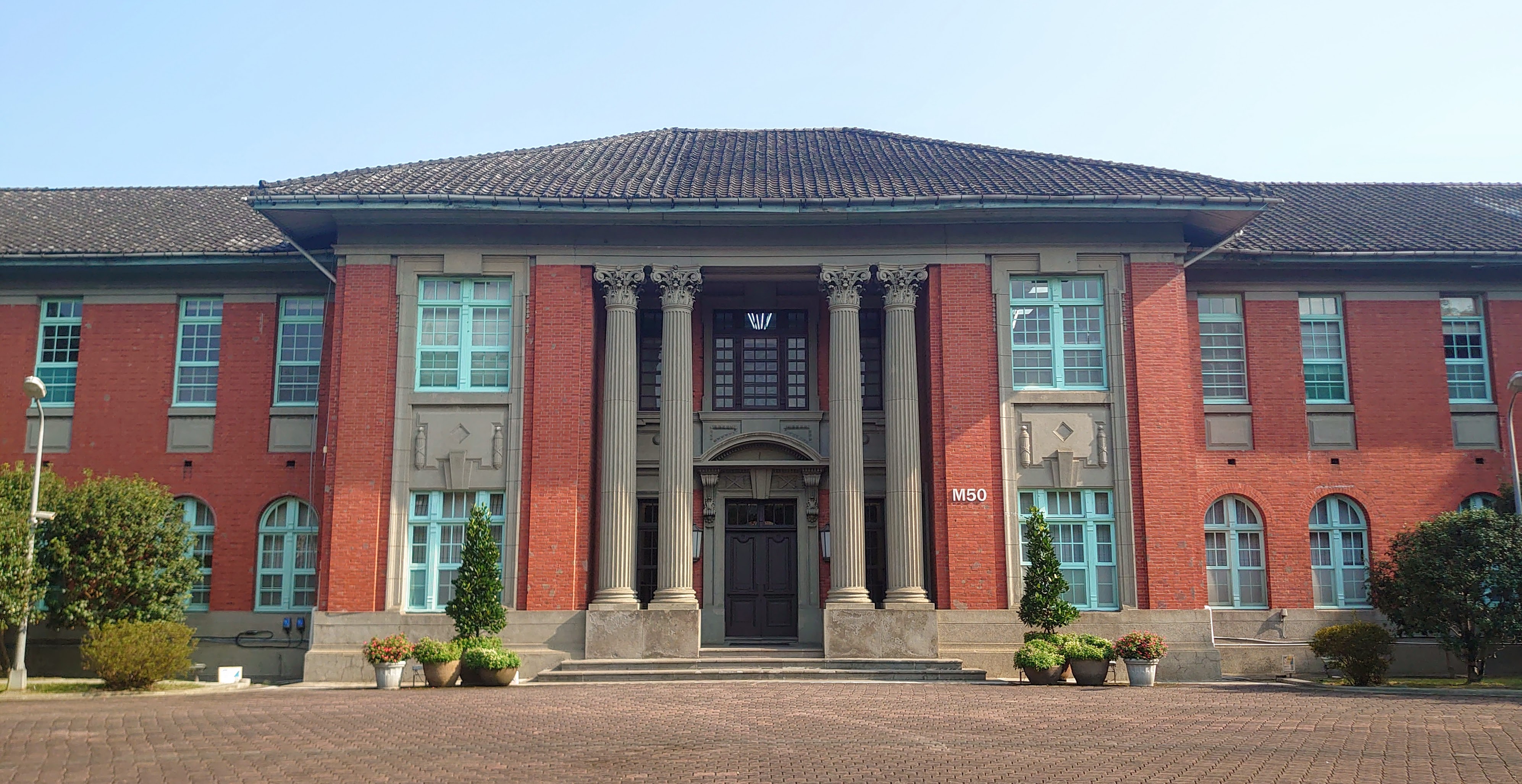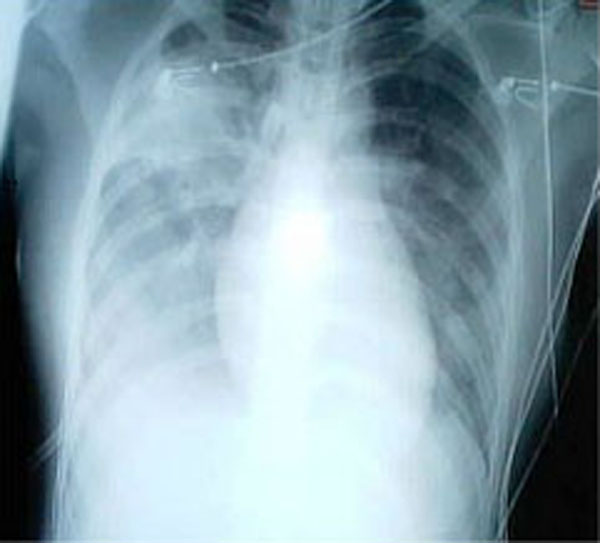|
Ih-Jen Su
Su Ih-jen (蘇益仁 born 1950) is a Taiwanese medical researcher and distinguished investigator and was the director of the Division of Infectious Diseases at the National Health Research Institutes in Taiwan. Career Su received his MD degree from National Taiwan University Medical School in 1976, and a PhD in pathology in 1987. His research focus is on virus and virus-associated human cancers. He co-authored ''SARS in Taiwan: an overview and lessons learned'', published by The International Journal of Infectious Diseases, which aimed to describe the epidemiology of SARS in Taiwan between March and July 2003, along with the public health response. He has published more than 200 papers in journals including ''The Lancet'', ''Blood'', ''Journal of Clinical Investigation'', and ''The American Journal of Pathology''. He was a speaker at the 4th International Conference and Exhibition on Metabolomics & Systems Biology in 2015. Through 2002, Su taught at National Taiwan University Med ... [...More Info...] [...Related Items...] OR: [Wikipedia] [Google] [Baidu] |
National Health Research Institutes
The National Health Research Institutes (NHRI; ) in Zhunan Township, Miaoli County, Taiwan, is a non-profit foundation dedicated to medical research and improved healthcare in Taiwan. Established by the Taiwan government in 1995, NHRI is under the supervision of the Ministry of Health and Welfare. Organisation NHRI currently has 11 research units: Research Units * National Institute of Cancer Research * Taiwan Cooperative Oncology Group, TCOG * Institute of Cellular and System Medicine * Institute of Population Health Sciences * Institute of Biotechnology and Pharmaceutical Research * Institute of Molecular and Genomic Medicine * National Institute of Infectious Diseases and Vaccinology * National Institute of Environmental Health Sciences * Institute of Biomedical Engineering and Nanomedicine * Immunology Research Center * Center for Neuropsychiatric Research See also * Ministry of Health and Welfare (Taiwan) * Healthcare in Taiwan Healthcare in Taiwan is administered by ... [...More Info...] [...Related Items...] OR: [Wikipedia] [Google] [Baidu] |
World Health Organization
The World Health Organization (WHO) is a specialized agency of the United Nations responsible for international public health. The WHO Constitution states its main objective as "the attainment by all peoples of the highest possible level of health". Headquartered in Geneva, Switzerland, it has six regional offices and 150 field offices worldwide. The WHO was established on 7 April 1948. The first meeting of the World Health Assembly (WHA), the agency's governing body, took place on 24 July of that year. The WHO incorporated the assets, personnel, and duties of the League of Nations' Health Organization and the , including the International Classification of Diseases (ICD). Its work began in earnest in 1951 after a significant infusion of financial and technical resources. The WHO's mandate seeks and includes: working worldwide to promote health, keeping the world safe, and serve the vulnerable. It advocates that a billion more people should have: universal health care coverag ... [...More Info...] [...Related Items...] OR: [Wikipedia] [Google] [Baidu] |
Academic Staff Of The National Cheng Kung University
An academy (Attic Greek: Ἀκαδήμεια; Koine Greek Ἀκαδημία) is an institution of secondary or tertiary higher learning (and generally also research or honorary membership). The name traces back to Plato's school of philosophy, founded approximately 385 BC at Akademia, a sanctuary of Athena, the goddess of wisdom and skill, north of Athens, Greece. Etymology The word comes from the ''Academy'' in ancient Greece, which derives from the Athenian hero, ''Akademos''. Outside the city walls of Athens, the gymnasium was made famous by Plato as a center of learning. The sacred space, dedicated to the goddess of wisdom, Athena, had formerly been an olive grove, hence the expression "the groves of Academe". In these gardens, the philosopher Plato conversed with followers. Plato developed his sessions into a method of teaching philosophy and in 387 BC, established what is known today as the Old Academy. By extension, ''academia'' has come to mean the accumulation, dev ... [...More Info...] [...Related Items...] OR: [Wikipedia] [Google] [Baidu] |
National Taiwan University Alumni
National may refer to: Common uses * Nation or country ** Nationality – a ''national'' is a person who is subject to a nation, regardless of whether the person has full rights as a citizen Places in the United States * National, Maryland, census-designated place * National, Nevada, ghost town * National, Utah, ghost town * National, West Virginia, unincorporated community Commerce * National (brand), a brand name of electronic goods from Panasonic * National Benzole (or simply known as National), former petrol station chain in the UK, merged with BP * National Car Rental, an American rental car company * National Energy Systems, a former name of Eco Marine Power * National Entertainment Commission, a former name of the Media Rating Council * National Motor Vehicle Company, Indianapolis, Indiana, USA 1900-1924 * National Supermarkets, a defunct American grocery store chain * National String Instrument Corporation, a guitar company formed to manufacture the first resonator g ... [...More Info...] [...Related Items...] OR: [Wikipedia] [Google] [Baidu] |
Taiwanese Medical Researchers
Taiwanese may refer to: * Taiwanese language, another name for Taiwanese Hokkien * Something from or related to Taiwan (Formosa) * Taiwanese aborigines, the indigenous people of Taiwan * Han Taiwanese, the Han people of Taiwan * Taiwanese people, residents of Taiwan or people of Taiwanese descent * Taiwanese language (other) * Taiwanese culture * Taiwanese cuisine * Taiwanese identity Taiwanese people may be generally considered the people of Taiwan who share a common culture, ancestry and speak Taiwanese Mandarin, Hokkien, Hakka or indigenous Taiwanese languages as a mother tongue. Taiwanese people may also refer to the i ... See also * {{disambiguation Language and nationality disambiguation pages ... [...More Info...] [...Related Items...] OR: [Wikipedia] [Google] [Baidu] |
1950 Births
Year 195 ( CXCV) was a common year starting on Wednesday (link will display the full calendar) of the Julian calendar. At the time, it was known as the Year of the Consulship of Scrapula and Clemens (or, less frequently, year 948 '' Ab urbe condita''). The denomination 195 for this year has been used since the early medieval period, when the Anno Domini calendar era became the prevalent method in Europe for naming years. Events By place Roman Empire * Emperor Septimius Severus has the Roman Senate deify the previous emperor Commodus, in an attempt to gain favor with the family of Marcus Aurelius. * King Vologases V and other eastern princes support the claims of Pescennius Niger. The Roman province of Mesopotamia rises in revolt with Parthian support. Severus marches to Mesopotamia to battle the Parthians. * The Roman province of Syria is divided and the role of Antioch is diminished. The Romans annexed the Syrian cities of Edessa and Nisibis. Severus re-establ ... [...More Info...] [...Related Items...] OR: [Wikipedia] [Google] [Baidu] |
Living People
Related categories * :Year of birth missing (living people) / :Year of birth unknown * :Date of birth missing (living people) / :Date of birth unknown * :Place of birth missing (living people) / :Place of birth unknown * :Year of death missing / :Year of death unknown * :Date of death missing / :Date of death unknown * :Place of death missing / :Place of death unknown * :Missing middle or first names See also * :Dead people * :Template:L, which generates this category or death years, and birth year and sort keys. : {{DEFAULTSORT:Living people 21st-century people People by status ... [...More Info...] [...Related Items...] OR: [Wikipedia] [Google] [Baidu] |
Herd Immunity
Herd immunity (also called herd effect, community immunity, population immunity, or mass immunity) is a form of indirect protection that applies only to contagious diseases. It occurs when a sufficient percentage of a population has become immune to an infection, whether through previous infections or vaccination, thereby reducing the likelihood of infection for individuals who lack immunity. Once the herd immunity has been reached, disease gradually disappears from a population and may result in eradication or permanent reduction of infections to zero if achieved worldwide. Herd immunity created via vaccination has contributed to the reduction of many diseases. Effects Protection of those without immunity Some individuals either cannot develop immunity after vaccination or for medical reasons cannot be vaccinated. Newborn infants are too young to receive many vaccines, either for safety reasons or because passive immunity renders the vaccine ineffective. Individuals who are ... [...More Info...] [...Related Items...] OR: [Wikipedia] [Google] [Baidu] |
COVID-19 Pandemic In Taiwan
The COVID-19 pandemic in Taiwan is part of the COVID-19 pandemic, worldwide pandemic of coronavirus disease 2019 () caused by severe acute respiratory syndrome coronavirus 2 (). As of 18 December 2022, 28,928,047 tests had been conducted in Taiwan, of which 8,578,053 are confirmed cases, including 14,890 deaths. The virus was confirmed to have spread to Taiwan on 21 January 2020, with the first case being a 50-year-old woman who had been teaching in Wuhan, China. The Taiwanese government integrated data from the Healthcare in Taiwan, national health care system, immigration, and customs authorities to aid in the identification and response to the virus. Government efforts are coordinated through the (NHCC) of the Taiwan Centers for Disease Control, established to aid in disaster management for epidemics following the 2002–2004 SARS outbreak, 2003 SARS outbreak. The ''Journal of the American Medical Association'' says Taiwan engaged in 124 discrete action items to prevent the s ... [...More Info...] [...Related Items...] OR: [Wikipedia] [Google] [Baidu] |
National Taiwan University
National Taiwan University (NTU; ) is a public research university in Taipei, Taiwan. The university was founded in 1928 during Japanese rule as the seventh of the Imperial Universities. It was named Taihoku Imperial University and served during the period of Japanese colonization. After World War II, the Nationalist Kuomintang (KMT) government assumed the administration of the university. The Ministry of Education reorganized and renamed the university to its current name on November 15, 1945, with its roots of liberal tradition from Peking University in Beijing by former NTU President Fu Ssu-nien. The university consists of 11 colleges, 56 departments, 133 graduate institutes, about 60 research centers, and a school of professional education and continuing studies. Notable alumni include Tsai Ing-Wen, current President of the Republic of China, former presidents Lee Teng-hui, Chen Shui-bian and Ma Ying-jeou, Turing Award laureate Andrew Yao, and Nobel Prize in Chemistry ... [...More Info...] [...Related Items...] OR: [Wikipedia] [Google] [Baidu] |
SARS
Severe acute respiratory syndrome (SARS) is a viral respiratory disease of zoonotic origin caused by the severe acute respiratory syndrome coronavirus (SARS-CoV or SARS-CoV-1), the first identified strain of the SARS coronavirus species, ''severe acute respiratory syndrome–related coronavirus'' (SARSr-CoV). The first known cases occurred in November 2002, and the syndrome caused the 2002–2004 SARS outbreak. In the 2010s, Chinese scientists traced the virus through the intermediary of Asian palm civets to cave-dwelling horseshoe bats in Xiyang Yi Ethnic Township, Yunnan.The locality was referred to be "a cave in Kunming" in earlier sources because the Xiyang Yi Ethnic Township is administratively part of Kunming, though 70 km apart. Xiyang was identified on * For an earlier interview of the researchers about the locality of the caves, see: SARS was a relatively rare disease; at the end of the epidemic in June 2003, the incidence was 8,469 cases with a case fatality rate (CFR ... [...More Info...] [...Related Items...] OR: [Wikipedia] [Google] [Baidu] |
2002–2004 SARS Outbreak
The 2002–2004 outbreak of SARS, caused by severe acute respiratory syndrome coronavirus (SARS-CoV or SARS-CoV-1), infected over 8,000 people from 29 countries and territories, and resulted in at least 774 deaths worldwide. The outbreak was first identified in Foshan, Guangdong, China, in November 2002. The World Health Organization (WHO) was notified of the outbreak in February 2003, and issued a global alert in March 2003. Initially, the cause of the outbreak was unknown, and some media outlets reported that an influenza virus was a potential culprit. The major part of the outbreak lasted about 8 months, and the World Health Organization declared SARS contained on 5 July 2003. However, several SARS cases were reported until May 2004. In late December 2019, SARS-CoV-2, a new strain of coronavirus closely related to the one that caused SARS, was discovered in Wuhan, Hubei, China. The new strain causes COVID-19, a disease which has since spread worldwide, leading to an ongo ... [...More Info...] [...Related Items...] OR: [Wikipedia] [Google] [Baidu] |




